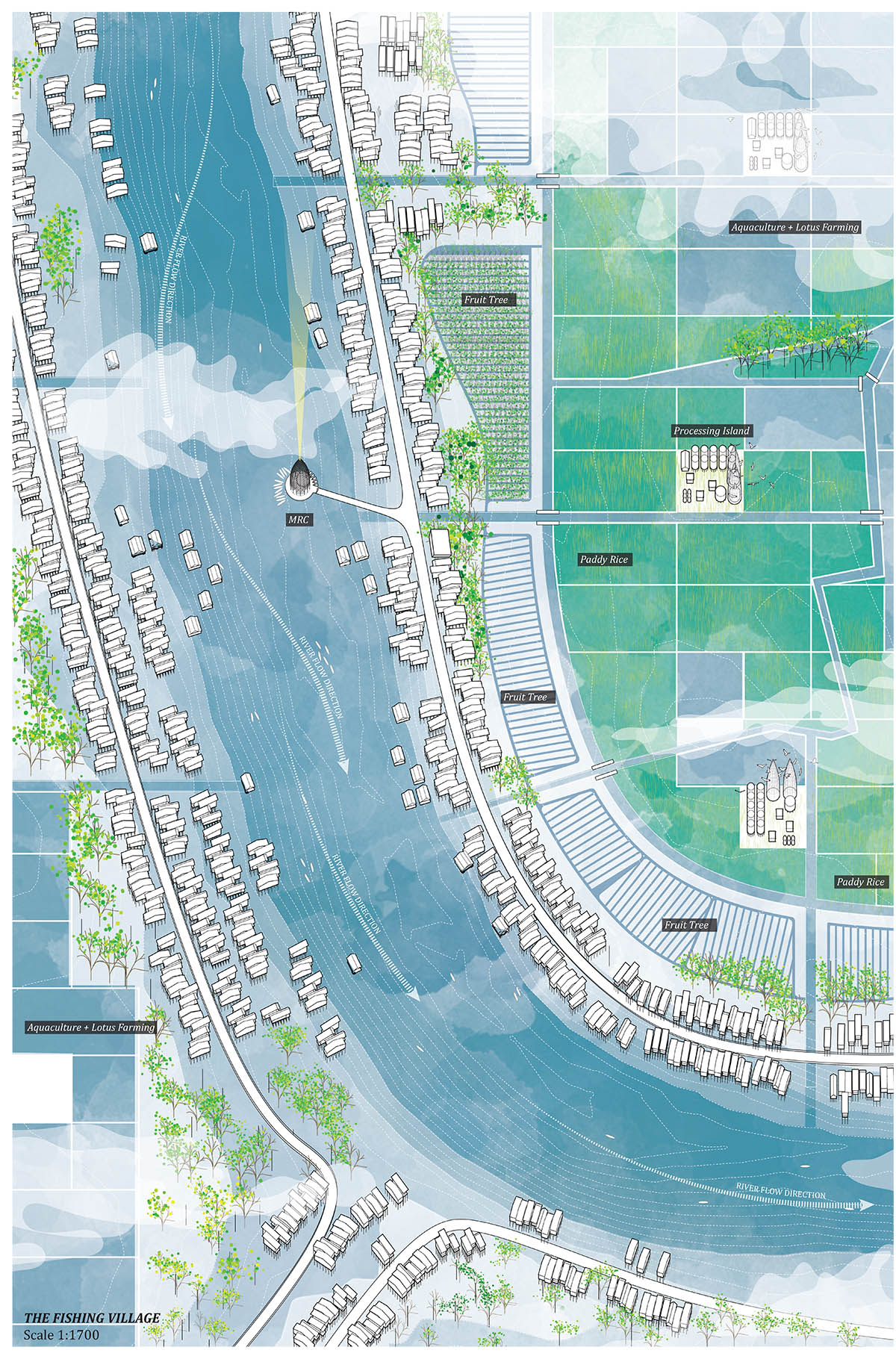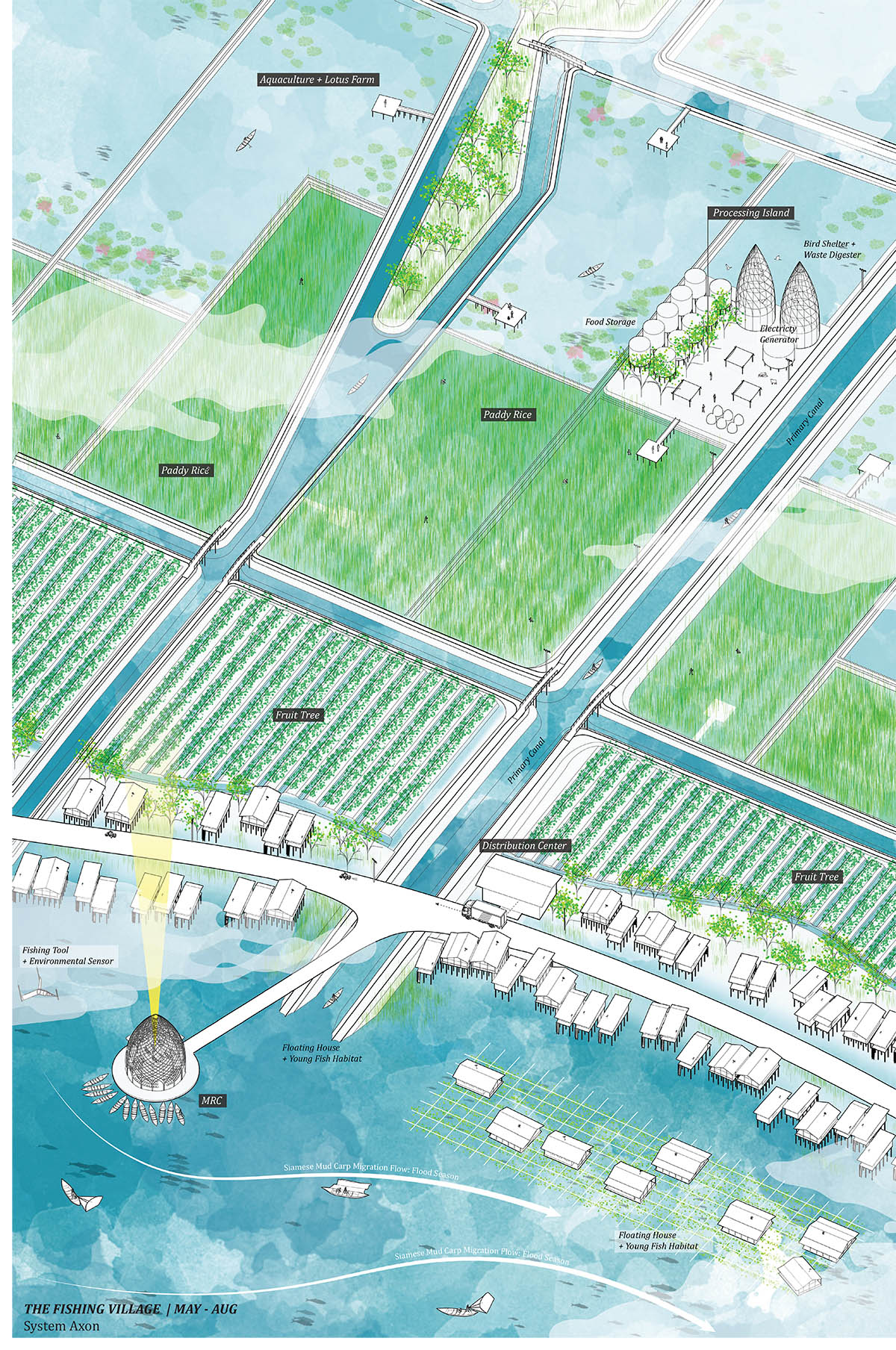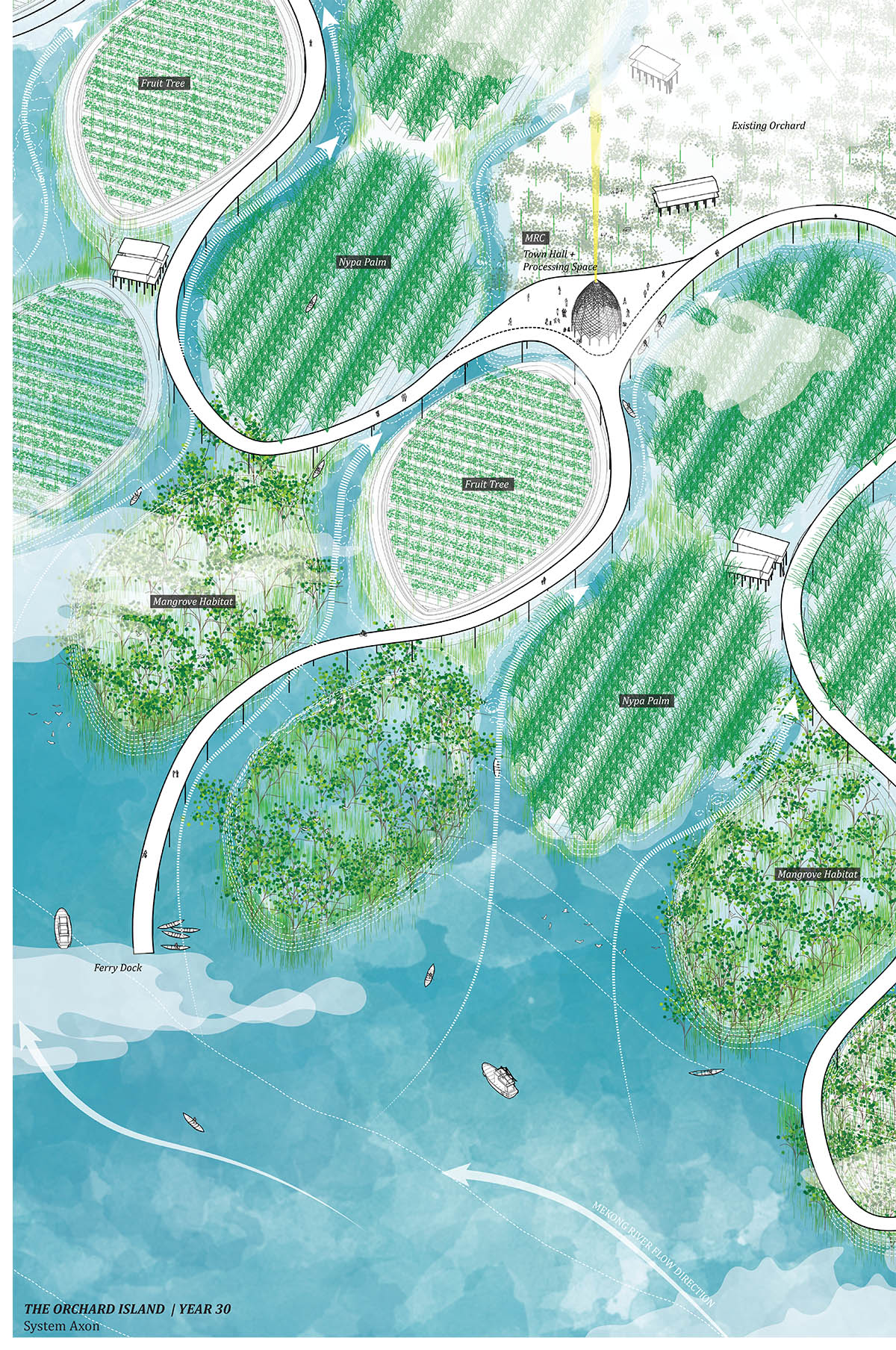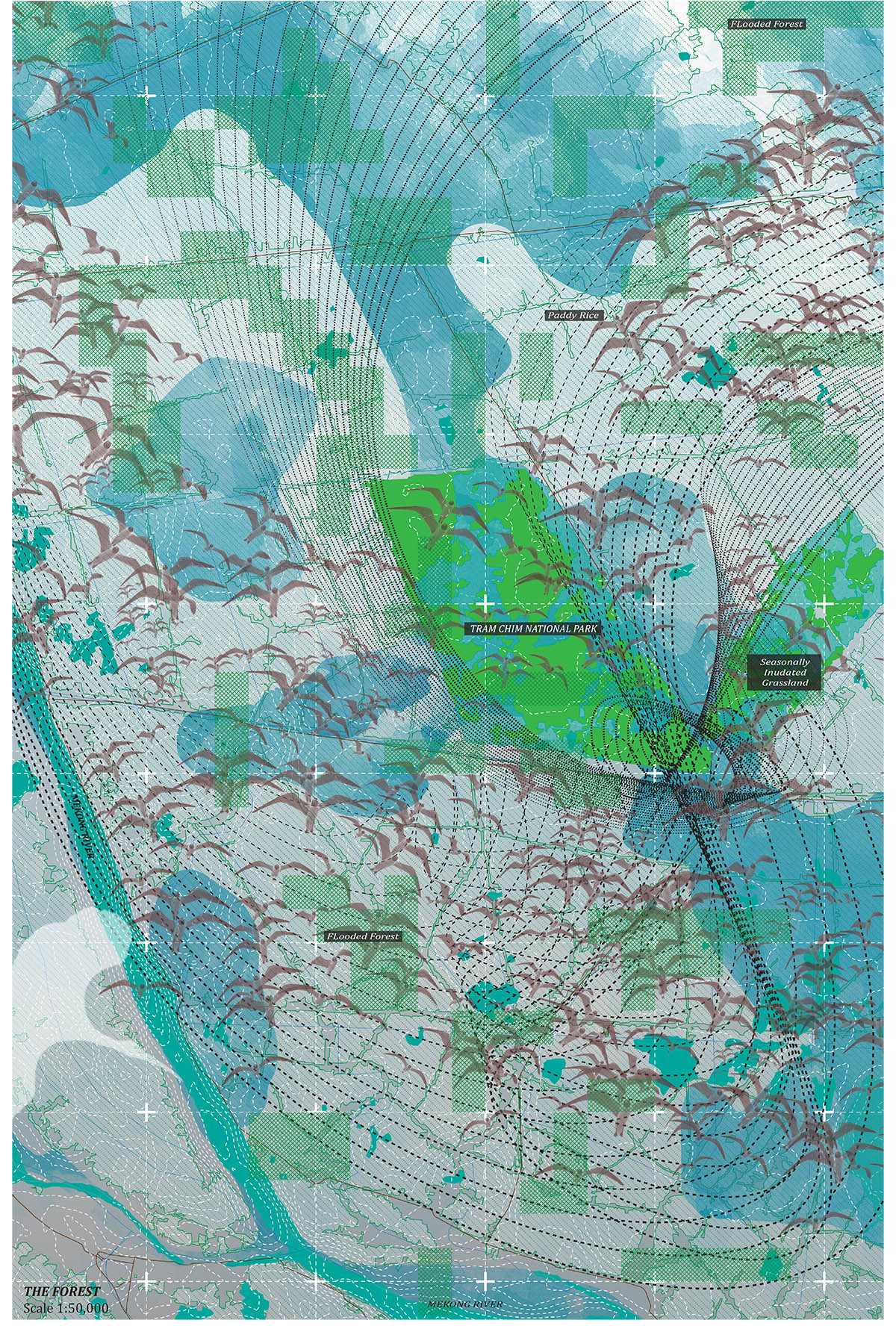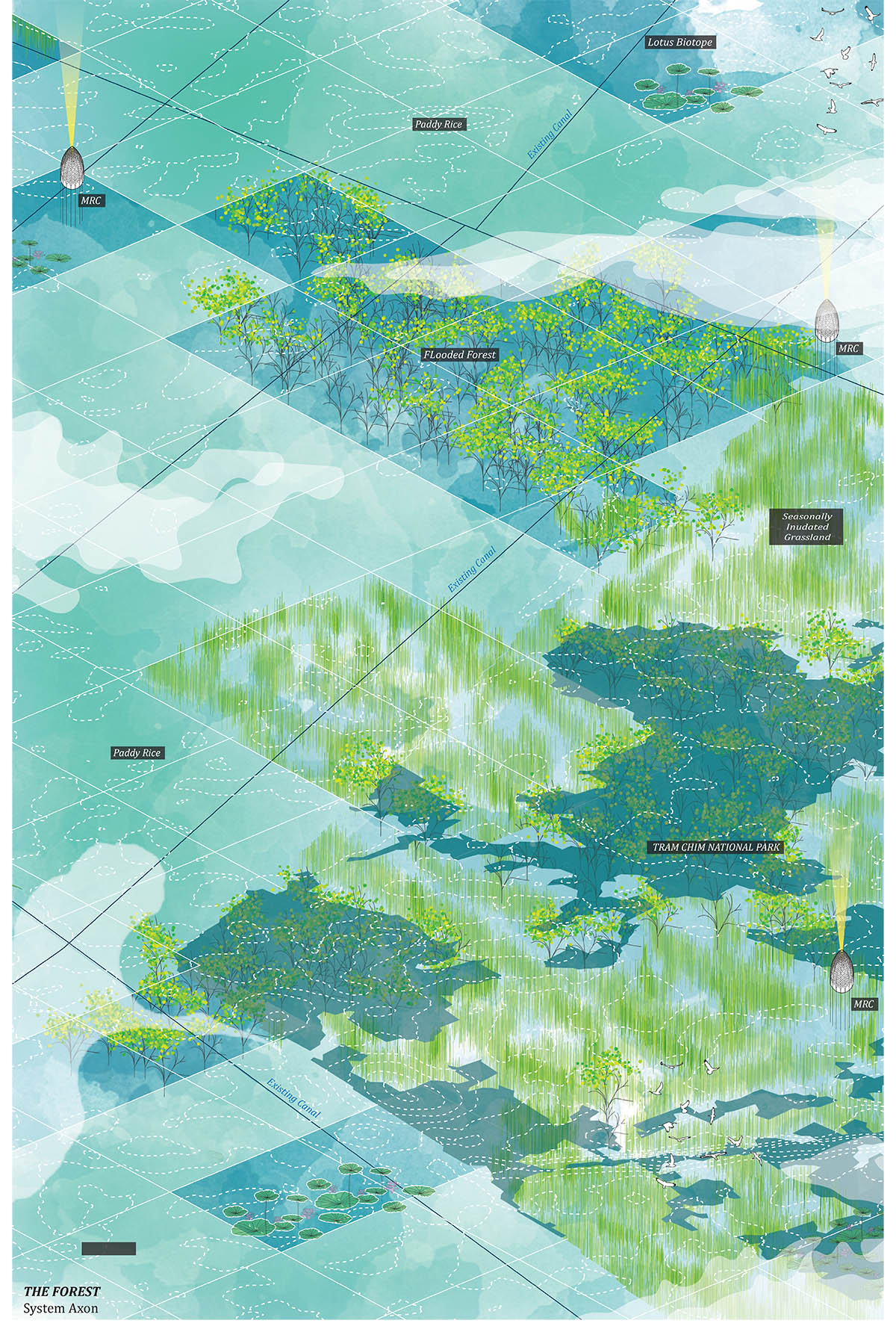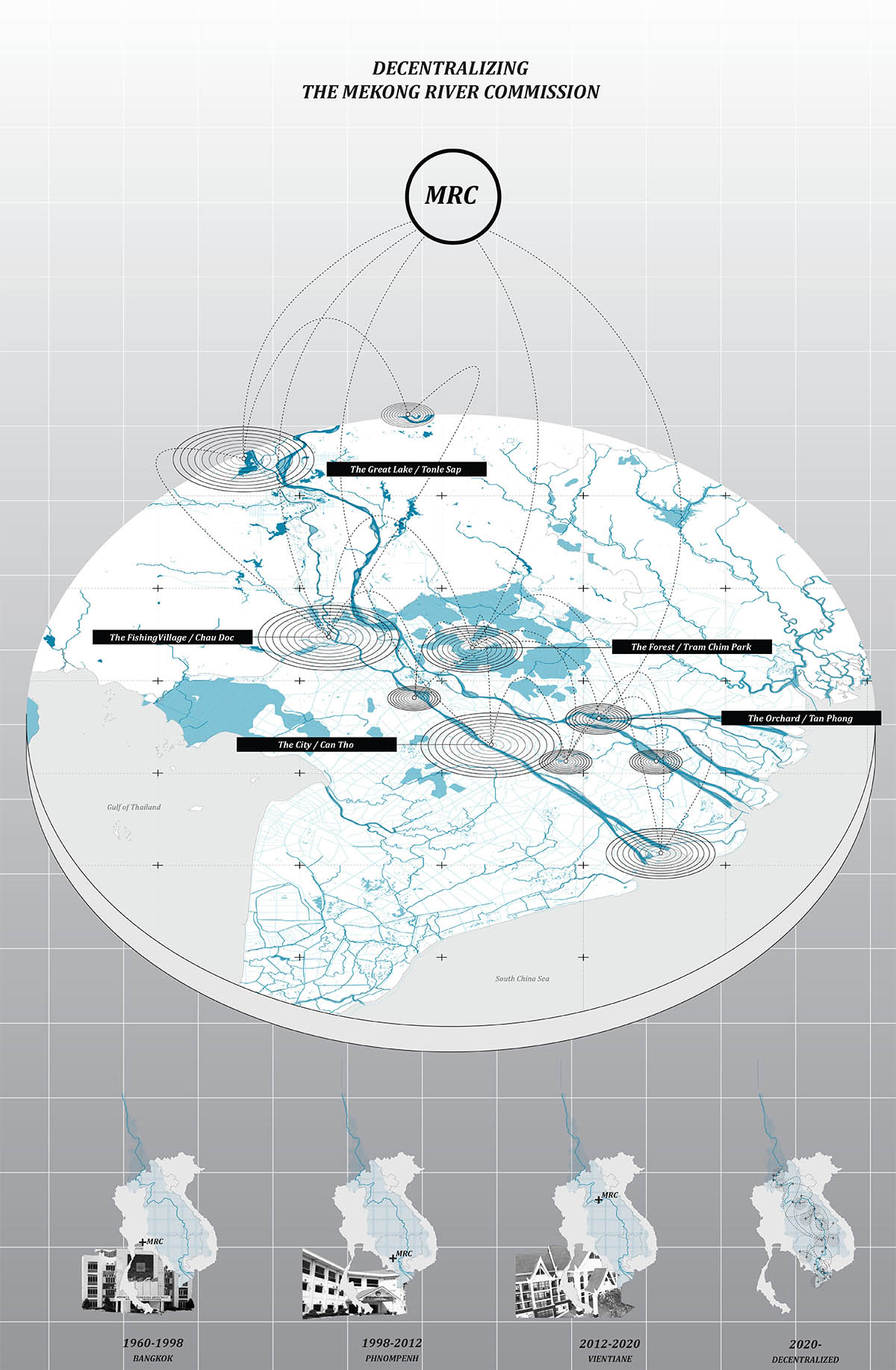Water Assemblage: A new politic for the Mekong River Collective
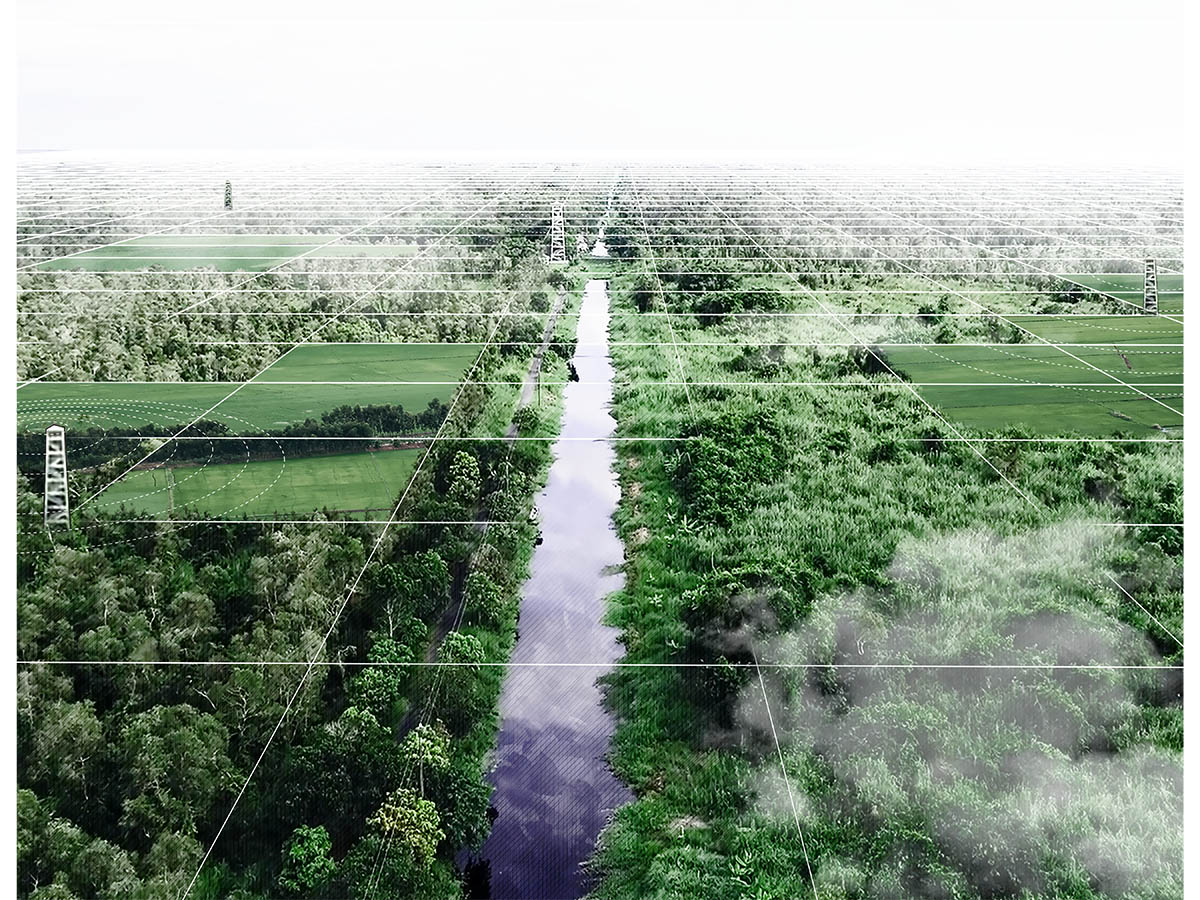
by Tam Banh (MArch, MLA ’18)
“The point . . . is that we don’t assemble because we agree, look alike, feel good, are socially compatible or wish to fuse together, but because we are brought by divisive matters of concern into some neutral, isolated place in order to come to some sort of provisional makeshift (dis)agreement.”
-Bruno Latour
Flowing for 4,630 kilometers through the heart of Southeast Asia, the Mekong River is the lifeblood of countless wildlife and tens of millions of people across six countries. But the enduring legacy of hydropower developments that devastate its landscape and plunder the natural resources it supports is jeopardizing the Mekong’s gifts and the survival of those who depend on it.
This project explores a new working and living dynamic between the Mekong and its inhabitants by redesigning the Mekong River Commission, an intergovernmental body responsible for water resource management and development in the Mekong Basin. Sited in the Mekong Delta in southwestern Vietnam, this project examines both the institution’s form and operational structure.
Asserting that the shaping and management of river landscapes is a political issue for which all sides must be heard, this reformulation of a water management institution seeks to create new operating principles for a world in which typically suppressed voices—from farmers, fishermen, and city-dwellers to plants, fish, and birds—can constitute new forms of collective power. The design recomposes the landscape’s established power structure and affirms the urgency of seeing the Mekong River not as an exploitable natural resource, but as a political being with a social and ethical conscience.
